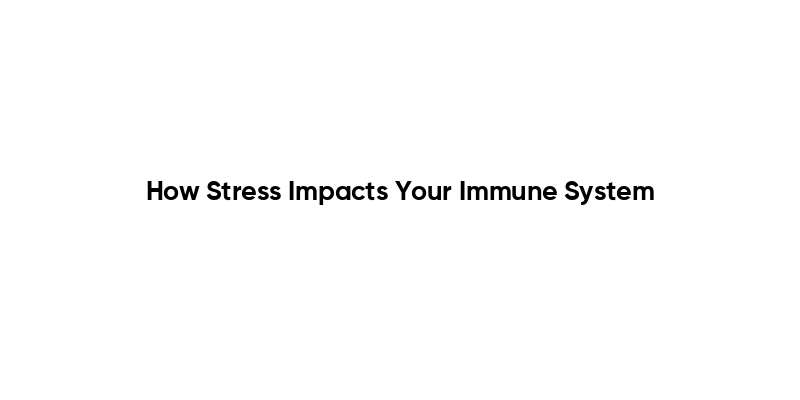In a significant health alert, the UK has initiated a Tamoxifen recall, raising alarm among the tens of thousands who rely on this medication for breast cancer treatment. The Medicines and Healthcare Products Regulatory Agency (MHRA) flagged concerns regarding a specific batch of Tamoxifen 20mg tablets, which may be ineffective due to failed dissolution tests. Although no adverse reactions have been reported, the potential cancer risk associated with these compromised pills has prompted health officials to act swiftly. Patients are urged to remain vigilant about potential Tamoxifen side effects while adhering to the guidance provided by healthcare professionals. As investigations continue, this UK drug recall serves as a reminder of the critical importance of drug safety in the fight against breast cancer.
A recent recall of a widely used medication has stirred concern among breast cancer survivors and healthcare professionals alike. This common prescription drug, which plays a vital role in reducing the risk of cancer recurrence, is currently under scrutiny due to a specific batch’s questionable efficacy. With the MHRA’s warning emphasizing the importance of medication compliance, patients are advised to stay informed about their treatment options. This incident highlights the broader implications of pharmacological safety and the ongoing vigilance needed in drug manufacturing. As this situation develops, it’s imperative for patients to communicate with their doctors regarding any concerns about their treatment regimen.
Tamoxifen Recall: What You Need to Know
In an urgent announcement, health officials have initiated a recall of a specific batch of Tamoxifen 20mg tablets due to potential dissolution issues. The Medicines and Healthcare Products Regulatory Agency (MHRA) has taken this precaution after the affected batch, produced by Wockhardt UK Limited, failed to meet routine dissolution tests. While the recall affects only batch HZ10030, it highlights the importance of ensuring that medications are effective in their delivery and impact on patient health.
For the millions of breast cancer survivors relying on Tamoxifen, this recall raises concerns about the integrity of their treatment. The MHRA has reassured patients that although they have yet to receive reports of harm from the suspected batch, it’s critical for healthcare professionals to act swiftly by removing the affected stock from circulation. Patients are advised to continue their medication as prescribed until they can discuss this matter with their healthcare provider, ensuring they are not left without a critical part of their cancer therapy.
Understanding the Risks of Tamoxifen
Tamoxifen plays a pivotal role in breast cancer treatment, but concerns regarding its cancer risk management have arisen. It is proven to reduce recurrence rates by nearly 45% for survivors who have undergone surgery and other treatments. However, the recently issued MHRA warning signals ongoing vigilance regarding the safety and efficacy of medications designed to combat cancer. With more than 550,000 individuals in the UK taking this drug, awareness of its proper use and any potential side effects is crucial.
The focus now on Tamoxifen’s safety profile raises questions about the downstream effects of ineffective medications. Patients prescribed with Tamoxifen should be made aware of the potential side effects, which include risks of blood clots and endometrial cancer. Healthcare professionals must educate their patients not only about the benefits of Tamoxifen in reducing cancer recurrence but also about how they can monitor for adverse effects, ensuring that immediate action can be taken if necessary.
MHRA’s Role in Drug Safety: A Closer Look
The role of the Medicines and Healthcare Products Regulatory Agency (MHRA) is central to maintaining drug safety in the UK. As public health guardians, the MHRA is responsible for overseeing the quality of medications like Tamoxifen, verifying their safety and effectiveness through rigorous testing protocols, including dissolution tests. When inconsistencies arise, rapid response actions, such as recalls, illustrate the agency’s commitment to patient safety and the public’s trust.
Beyond just recall notifications, the MHRA also emphasizes the importance of reporting adverse reactions through platforms like the Yellow Card scheme. This initiative empowers patients and healthcare providers to contribute vital information regarding any negative effects they may encounter while using prescribed medications. Effective communication between patients and their healthcare providers is essential for collective vigilance regarding drug safety.
The Importance of Dissolution Testing in Medications
Dissolution testing is a critical step in the pharmaceutical manufacturing process, determining how well a drug dissolves in the body. For medications like Tamoxifen, which must effectively deliver their active ingredients into the bloodstream to function properly, these tests ensure that patients receive the full therapeutic benefits. The MHRA’s recall due to a batch failing dissolution tests highlights the potential risks associated with subpar medications being available to the public.
Ensuring consistent and effective dissolution is part of broader safety practices that give patients a sense of security regarding their prescribed therapies. Patients should understand that these rigorous quality checks are in place to reduce the likelihood of ineffective medications, thus maximizing their treatment outcomes. It also emphasizes the need for continuous dialogue between manufacturers and healthcare providers to uphold the highest standards in medication quality.
Tamoxifen: A Historical Perspective
Originally developed as an oral contraceptive in the early 1960s, Tamoxifen has undergone significant evolution in its use and application. It wasn’t until trials in the 1980s confirmed its efficacy in treating breast cancer that it became a cornerstone of oncology care. Notably, Tamoxifen became the first medication prescribed to prevent breast cancer for high-risk individuals, exemplifying a significant milestone in cancer prevention.
By helping to reduce breast cancer recurrence by up to 45%, Tamoxifen has transformed the landscape of breast cancer treatment, directly impacting the lives of countless women. As awareness of its benefits continues to grow alongside emerging concerns about safety, the spotlight remains on ensuring that current practices, including patient education and drug monitoring, adapt to meet the evolving needs of breast cancer care.
Navigating Adverse Effects of Tamoxifen
While the benefits of Tamoxifen in reducing the risk of breast cancer recurrence are well-documented, it’s equally important for patients to understand and navigate its potential side effects. Common adverse effects include hot flashes, risk of blood clots, and even endometrial cancer. Healthcare providers should routinely discuss these risks with their patients, helping them recognize symptoms early and reassuring them that they can seek assistance at any sign of trouble.
Patients should be proactive in monitoring their health while taking Tamoxifen. Keeping a record of symptoms and communicating openly with healthcare providers can significantly enhance patient safety and promote effective management of any adverse reactions. The MHRA’s commitment to transparency and the reporting of adverse effects plays a crucial role in identifying long-term risks associated with Tamoxifen, ensuring that safety remains a top priority.
The Role of Tamoxifen in Preventative Care
Tamoxifen is more than just a treatment—it’s a preventative measure for those with a high risk of developing breast cancer. Studies conducted in 2013 revealed that Tamoxifen could lower the incidence of breast cancer among women with a strong family history of the disease. This preventive aspect positions Tamoxifen as an essential tool in oncology, underscoring the need for thorough public awareness and understanding of the medication’s benefits beyond just treatment.
As preventative care becomes an integral part of modern medicine, the role of medications like Tamoxifen in potentially averting cancer before it starts cannot be overstated. Patients at risk must engage with healthcare professionals to assess their eligibility for preventive therapies, emphasizing the proactive measures available to them. This ongoing dialogue is vital in ensuring that cancer risk management is comprehensive and effective.
Importance of Patient Education on Tamoxifen
Effective patient education on the use of Tamoxifen is vital to ensuring safe and effective treatment. Patients need to understand not only how to take their medication but also the potential risks and benefits associated with it. Clear communication from healthcare providers regarding the importance of adherence, monitoring for side effects, and understanding the implications of the recent MHRA recall is essential for patient safety.
Healthcare providers should engage in thorough discussions with patients, discussing how Tamoxifen can impact their lives positively while also addressing any concerns they might have. Knowledge about possible adverse reactions and what to do if they occur should be a standard part of these conversations, empowering patients to take an active role in their healthcare decisions regarding cancer treatment.
Future Directions in Breast Cancer Treatment Research
As the field of oncological research progresses, there is hope for advancement in breast cancer treatments, especially concerning Tamoxifen. Ongoing studies aim to explore how current therapies can be improved, focusing on reducing side effects while enhancing efficacy. With options like Tamoxifen already demonstrating success in managing breast cancer risk, research efforts are directed towards optimizing treatment protocols and finding novel targeted therapies.
The recall of specific batches of Tamoxifen serves as a reminder of the need for continual assessment of drug safety and effectiveness. Future brews of treatment must thoroughly address both the challenges and opportunities that lie in enhancing patient care. By prioritizing safety, efficacy, and patient feedback, healthcare professionals can help shape treatment paradigms that not only combat cancer but also align with patients’ needs and expectations.
Frequently Asked Questions
What is the current status of the Tamoxifen recall regarding cancer risk?
The current status of the Tamoxifen recall involves a specific batch of Tamoxifen 20mg tablets, batch number HZ10030, recalled by the UK Medicines and Healthcare Products Regulatory Agency (MHRA) due to concerns that it may not dissolve effectively in the bloodstream. Although there are fears about cancer risk, no reports of harm have been received from patients.
How does the Tamoxifen recall affect breast cancer treatment?
The Tamoxifen recall may impact breast cancer treatment for patients using the affected batch. Although patients are advised to continue taking their medication as prescribed, healthcare professionals must stop supplying the recalled batch and quarantine it. This ensures that patients continue effective treatment without interruption.
What should patients do if they have taken the recalled Tamoxifen?
Patients who have taken the recalled batch of Tamoxifen 20mg should continue their medication as prescribed but should contact their healthcare professional if they have concerns or experience adverse reactions. It’s crucial to report any adverse reactions through the MHRA’s Yellow Card scheme.
What are the side effects associated with Tamoxifen and the recent recall?
Tamoxifen can have side effects, including hot flashes, nausea, and fatigue. The recent recall doesn’t indicate new side effects but raises concerns about the efficacy of a specific batch. Patients should monitor any symptoms and consult with their healthcare provider if they have concerns.
What does the MHRA warning mean for the batch of Tamoxifen 20mg tablets?
The MHRA warning indicates that the batch HZ10030 of Tamoxifen 20mg tablets may not dissolve properly, potentially affecting its effectiveness in breast cancer treatment. Healthcare professionals are instructed to stop supplying this particular batch immediately.
Can Tamoxifen reduce the risk of breast cancer recurrence even with a recall?
Yes, Tamoxifen remains a critical treatment for reducing the risk of breast cancer recurrence. The current recall pertains to a specific batch, and patients should continue their Tamoxifen regimen unless advised otherwise by their healthcare provider.
What is the importance of the Tamoxifen recall for patients and healthcare professionals?
The Tamoxifen recall is vital for ensuring patient safety and treatment efficacy. It prompts healthcare professionals to evaluate their inventory and ensure that patients receive only the safe and effective medications required for proper breast cancer treatment.
What steps are being taken regarding the affected batch of Tamoxifen?
Steps being taken regarding the affected batch of Tamoxifen include quarantine of the stock by healthcare providers, ongoing monitoring by the MHRA, and advising patients to report any adverse reactions while continuing their treatment with unaffected supplies.
| Key Points |
|---|
| Urgent recall of Tamoxifen 20mg tablets due to cancer risk |
| Issued by the MHRA regarding batch number HZ10030, expiring April 30, 2027 |
| Approximately 550,000 British breast cancer survivors use Tamoxifen |
| Tamoxifen reduces recurrence risk by up to 45% post-treatment |
| Healthcare professionals advised to halt supply of affected batch |
| Patients urged to report any adverse reactions via the MHRA’s Yellow Card scheme |
| Originally developed as a contraceptive, now a key cancer treatment |
Summary
The Tamoxifen recall has raised significant concerns due to potential risks associated with one batch of the medication. While the Medicines and Healthcare Products Regulatory Agency (MHRA) has not yet received harm reports, the alert emphasizes the importance of drug safety and efficacy. With hundreds of thousands of breast cancer survivors relying on this treatment, it remains crucial for patients to follow guidance and ensure their health is prioritized. Immediate action from healthcare professionals is necessary to prevent any adverse effects related to the recalled batch.



